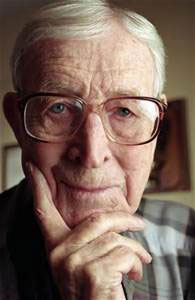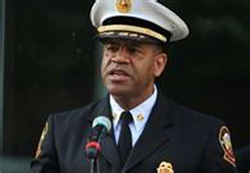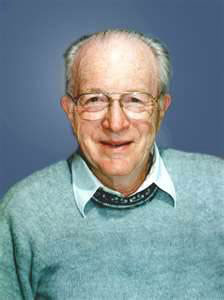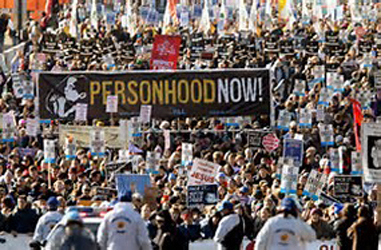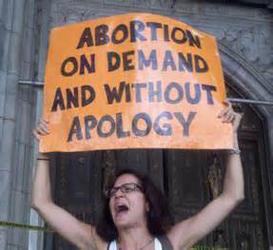“A Piece of My Mind”
July-August 2015 Newsletter from
Donald Shoemaker
Advancing Christian Faith and Values,
Defending Religious Liberty for All,
Supporting Civility and the Common Good
through Preaching, Teaching, Writing,
Activism and Reasoned Conversations
Two Great Commemorations
• The Magna Carta (800th Anniversary)
• The Declaration of Independence
 “The same revolutionary beliefs for which our forebears fought are still at issue around the globe—the belief that the rights of man come not from the generosity of the state but from the hand of God.”
“The same revolutionary beliefs for which our forebears fought are still at issue around the globe—the belief that the rights of man come not from the generosity of the state but from the hand of God.”
– President John F. Kennedy
(Inaugural Address, January 20, 1961)
“This June and July we recall two of history’s greatest documents. As July 4 approaches,  we recall our own Declaration of Independence. It was rooted in
we recall our own Declaration of Independence. It was rooted in
The concept of a Creator, Lawgiver, Protector and Judge.
Lesser known, of course, is the Magna Carta of 1215. An attempt to bring a modicum of peace between King John and the country’s barons, it was ignored by both sides and nullified by Pope Innocent III. Much of it is obsolete in terms of the issues we either celebrate or struggle for today. Nonetheless, it prevailed as one of the earliest ancestors to our Constitution and has legendary status in
Much of it is obsolete in terms of the issues we either celebrate or struggle for today. Nonetheless, it prevailed as one of the earliest ancestors to our Constitution and has legendary status in
the march to acknowledge human liberties.
Of worthy note is the religious liberty upheld in the document’s first point:
FIRST, THAT WE HAVE GRANTED TO GOD, and by this present charter have confirmed for us and our heirs in perpetuity, that the English Church shall be free, and shall have its rights undiminished, and its liberties unimpaired.
The American experiment will take it one important step further: there will be no national church established in the United States.
The Magna Carta reflects more the second “prong” of religious liberty found in the First Amendment of our Bill of Rights: the “free exercise” of religion must not be prohibited. There is no chance that a national or even a state church will emerge in America. It is possible, however, for a secular ideology—a counterpart to religious doctrine—to so dominate society that religious freedom (free exercise) is impaired. The bigger the state gets, the greater the risk it will crowd out religious convictions and assume for itself the role of quasi–‐deity, with its own doctrines and commandments.
This would be a secular version of the forbidden “establishment of religion”. I fear this trend far more than domination by any one religious faith. There are other statements in the Magna Carta of enduring value. I note this one (#39), which finds expression in our Bill of Rights:
No free man shall be seized or imprisoned, or stripped of his rights or possessions, or outlawed or exiled, or deprived of his standing in
any other way, nor will we proceed with force against him, or send others to do so, except by the lawful judgment of his equals or by the law of the land.
We should not live under the illusion that America is “God’s Country” or a Christian nation. But we would be naïve and ahistorical to ignore the role of religion, especially the Christian faith, in shaping who we are and ought to be as a nation.
For that formative role I give thanks as Independence Day approaches and every time I heartily sing,
America, America, God mend thine every flaw.
Confirm thy soul in self-‐control, thy liberty in law.
Don’s Upcoming Ministries
 July 21-26 – Attend the Annual Conference of the Fellowship of Grace Brethren Churches in NYC
July 21-26 – Attend the Annual Conference of the Fellowship of Grace Brethren Churches in NYC
– Present a seminar: Hi-‐Speed Social Change: How to Understand and Respond to What’s Happening to our Values
– As Associate Endorsing Agent for Military Chaplains, participate in honoring our denomination’s endorsed military chaplains
– As Chairman of the Social Concerns Committee, present resolutions on contemporary social issues to the delegates of the Conference
August 16 – Speak in Sunday morning worship services (8:00, 9:30, 11:00) at Grace Community Church of Seal Beach
Message of the Month—Should We Forgive?
 Do we forgive the man who massacred nine people at a Bible class in Charleston, SC? We hear calls to forgive. But is forgiveness the gift to offer him? Is it the Christian thing to do?
Do we forgive the man who massacred nine people at a Bible class in Charleston, SC? We hear calls to forgive. But is forgiveness the gift to offer him? Is it the Christian thing to do?
No, not at all. Christians are called to forgive others as God has forgiven us (Ephesians 4:32). God’s forgiveness is conditional and ours should be too. At a minimum it requires repentance by the wrongdoer—a condition of heart we have not seen or are likely to see in this perpetrator.
Individuals may forgive, but in this case the primary individuals who were violated are not here to forgive. The state is called to dispense justice, not forgiveness. Justice calls for permanent removal of this man from society, should he be found guilty, through one effective penalty or another.
We can comfort and support the grieving in their distress. We can help them overcome  bitterness of heart and rage and malice, but this is not to be confused with forgiveness. We can pray and work for peace in our country. We can renew our commitment to the causes of justice. We can pray for the murderer’s repentance and for hearts willing to forgive. But no, now is not the time to forgive.
bitterness of heart and rage and malice, but this is not to be confused with forgiveness. We can pray and work for peace in our country. We can renew our commitment to the causes of justice. We can pray for the murderer’s repentance and for hearts willing to forgive. But no, now is not the time to forgive.
Unconditional forgiveness cheapens the enormity of the wrong and misunderstands both love and grace.
NOTES: Published in the Long Beach CA Press-Telegram June 28, 2015. You may still listen to my sermon on the forgiveness petition of “The Lord’s Prayer”, delivered at Grace Community Church of Seal Beach on March 22. Go to this link and access 3/22/15:
http://www.gracesealbeach.org/media.php?pageID=28
Church on the Move—Loving Its (far off) Neighbor
When an out-of-season tornado smashed through Nappanee, Indiana in 2007, Grace Community Church of nearby Goshen cancelled Sunday services and transported members by the hundreds to do cleanup work. Members could be seen wearing blue “Grace In Action” shirts as they served in Nappanee.
What to do for an encore? The church has responded to many crises. But how about a trip to Iraq?
Pastor Jim Brown was burdened by the terrorism and suffering there and pondered a Bible  verse, 1 John 3:17, “If anyone has material possessions and sees a brother or sister in need but has no pity on them, how can the love of God be in that person?”
verse, 1 John 3:17, “If anyone has material possessions and sees a brother or sister in need but has no pity on them, how can the love of God be in that person?”
Not exactly known for being stationary, Jim’s response to that verse was most unique. The church raised $70,000 for the trip and for supplies—16 trunks of food, water and medical supplies. A team of eight men from the church was off to Iraq.
 One of many encounters came in the city of Erbil where they surprisingly met 100 of the town’s leaders and, through a translator, explained their mission and prayed for them. “In the middle of ISIS-‐ridden Iraq, we told these leaders about the hope of Jesus Christ.”
One of many encounters came in the city of Erbil where they surprisingly met 100 of the town’s leaders and, through a translator, explained their mission and prayed for them. “In the middle of ISIS-‐ridden Iraq, we told these leaders about the hope of Jesus Christ.”
The team would leave many lasting impacts. Just before departing, they responded to the huge refugee problem by renting apartments for 12 families, with plans to do more.
I told Jim, “That is salt and light—‘social concerns’ in a big way, and Beatitude living too—‘Blessed are the merciful…blessed are the peacemakers.’ Thanks for putting vision into action. And setting the bar high for others.”
Jim replied, “We just couldn’t sit there and do nothing. The good news is that we have 41 apartments with over 300 precious people rescued and now connected to a church in Erbil!”
The work continues: “Our church rallied around the cause and gave almost 1/4 of a million dollars… We now have the group of refugees connected to a local church and growing in their faith and new converts.”
NOTES: The “salt and light” metaphors and the “Beatitude” come from Jesus’ “Sermon on the Mount” in the Gospel of Matthew (5:1-‐16). They describe the impact Jesus desires his followers to have in the world. Information on the trip to Iraq was gleaned from the Spring, 2015 alumni publication by Grace College and Seminary, Winona Lake, Indiana (my alma mater).
The U.S. Supreme Court’s Decision on Same-Sex Marriage—Two Initial Responses
1. Christians who disagree with the court’s decision must commit themselves anew to modeling what they believe the Biblical teaching on marriage is. This is not just simply defining marriage as a union between a man and a woman. It is a life-long commitment that is deep and nurturing and supportive. It is a union that weathers the difficulties and celebrates the achievements. It is a union consummated in sexual union (the “marriage sacrament”) from which God providentially brings offspring who need the nurturing, protective presence of a father and a mother. It is a union that witnesses positively to our faith in the teachings of Jesus and his apostles on marriage.
2. We must passionately and actively uphold the longstanding, though eroding, American commitment to religious liberty. This is not just freedom for “houses of worship” and for clergy. It is for people, whatever their deep religious conviction, to live the tenets of their faith in their public lives without fear of government backlash or penalty or ridicule.




















